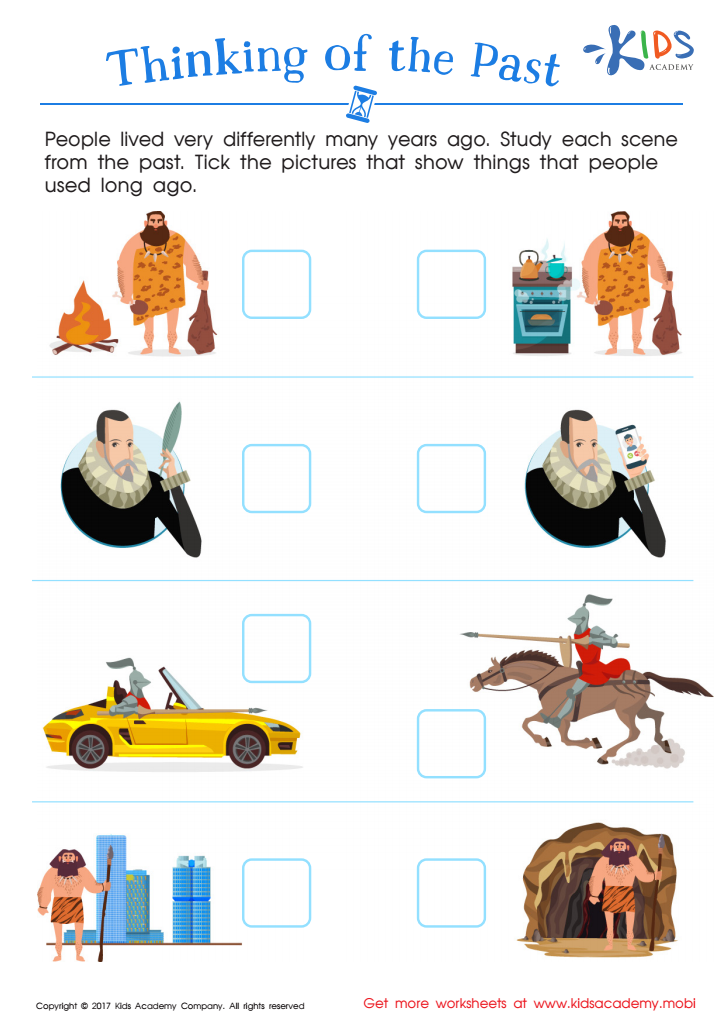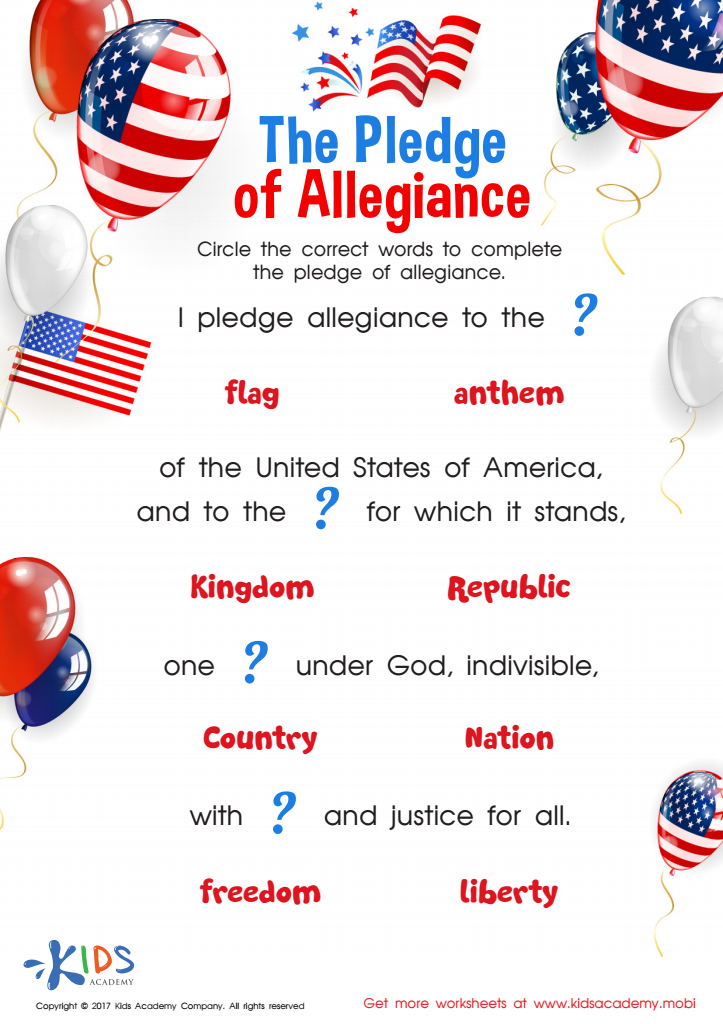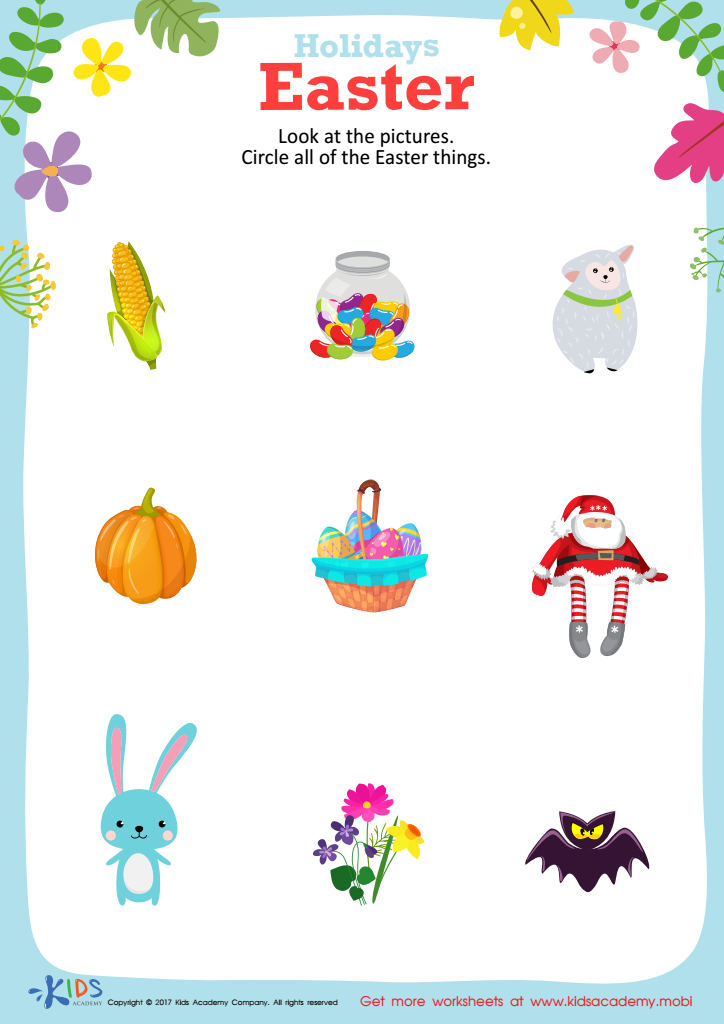Normal History Worksheets for Ages 3-6
4 filtered results
Difficulty Level
Grade
Age
-
From - To
Subject
Activity
Standards
Favorites
With answer key
Interactive


Thinking Past Printable
Bring the past to life for your kid with this fun worksheet! They'll use logic to choose the right answer, learning about different eras and how people lived in them. With a colorful caveman and modern skyscraper side by side, they won't even realize they're building historical knowledge.
Thinking Past Printable
Worksheet


The Pledge of Allegiance Worksheet
The 4th of July is near! Remind your little patriot of our country's pledge with this vivid worksheet. Your child can recall the words, choose between 2 answer choices, and practice reading skills. Use this worksheet to dive deeper into American culture and traditions. History worksheets are available to help you!
The Pledge of Allegiance Worksheet
Worksheet


Christmas Holiday Worksheet
'It's the most wonderful time of the year! Let your child discover the magic of Christmas with this free printable worksheet. Identify and learn more about the iconic symbols of the holiday season. Enjoy this festive activity together!
Christmas Holiday Worksheet
Worksheet


Easter Holiday Printable
This printable Easter worksheet helps your child identify symbols associated with the holiday. Pick out the pictures that usually signify Easter and your little one will gain an understanding of the holiday's meaning. With this free activity, springtime just got more exciting!
Easter Holiday Printable
Worksheet

 Assign to the classroom
Assign to the classroom



.jpg)








